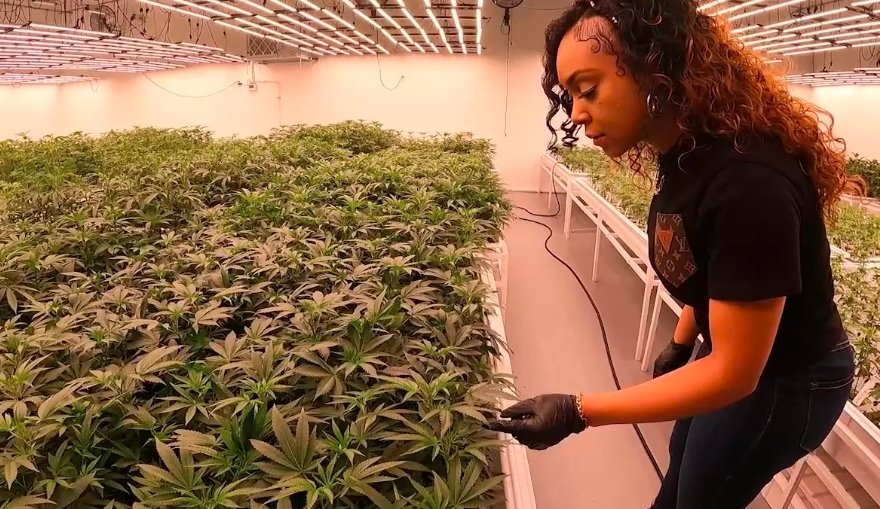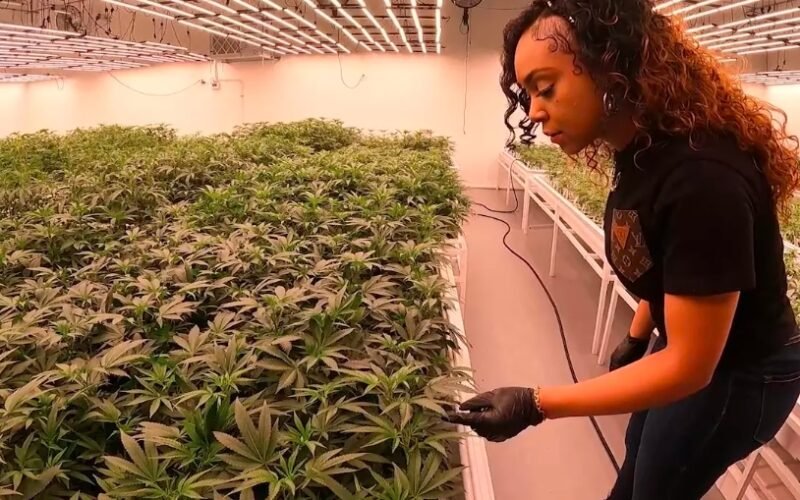A new bill introduced in the Arizona legislature aims to prevent corporate dispensaries and investors from exploiting the social equity marijuana program that was created by the state’s voters in 2020. The bill would impose stricter requirements and limitations on the transfer and ownership of the social equity licenses, which are intended to benefit communities that have been disproportionately impacted by the war on drugs.
What is the social equity marijuana program in Arizona?
The social equity marijuana program in Arizona was established by Proposition 207, which legalized recreational marijuana for adults 21 and older in the state. The initiative, which was approved by 60% of the voters in November 2020, required the Department of Health Services (DHS) to allocate 26 licenses for marijuana establishments to qualified social equity applicants. These applicants are defined as individuals from communities that have historically faced high rates of arrest, conviction, and incarceration for marijuana offenses, as well as economic disadvantages and barriers to entry in the legal marijuana industry.
The social equity program is designed to promote diversity, inclusion, and social justice in the marijuana market, as well as to create economic opportunities and generational wealth for marginalized groups. According to the Marijuana Policy Project, a pro-legalization advocacy group, the social equity licenses could potentially generate more than $100 million in annual revenue for the state and create thousands of jobs.
Why is the bill needed to protect the social equity licenses?
The bill, HB 2809, was introduced by Rep. Diego Rodriguez, a Democrat from Phoenix, who said he was concerned about the potential for corporate dispensaries and investors to take advantage of the social equity program and undermine its goals. He said he has heard reports of social equity applicants being offered millions of dollars to sell or lease their licenses to existing marijuana businesses, or being pressured to enter into unfavorable contracts or partnerships that would limit their control and profits.

Rodriguez said he wants to ensure that the social equity licenses are not used as a “backdoor” for corporate expansion or consolidation in the marijuana industry, which is already dominated by a few large players. He said he wants to protect the integrity and intent of the program, which is to empower and uplift the communities that have suffered the most from marijuana prohibition and criminalization.
What are the main provisions of the bill?
The bill would amend the state’s marijuana laws to include the following provisions:
- The social equity licenses would be non-transferable, meaning that they could not be sold, assigned, leased, or otherwise transferred to another person or entity, unless approved by the DHS.
- The social equity license holders would have to maintain at least 51% ownership and control of the marijuana establishment, and could not enter into any agreement that would reduce their ownership or control below that threshold.
- The social equity license holders would have to operate the marijuana establishment themselves, and could not delegate or subcontract the operation to another person or entity, unless approved by the DHS.
- The social equity license holders would have to comply with all the rules and regulations of the DHS, as well as any additional requirements or restrictions that the DHS may impose to ensure the fulfillment of the social equity program’s objectives.
- The social equity license holders would have to submit annual reports to the DHS, detailing their financial and operational activities, as well as their compliance with the social equity program’s criteria and goals.
- The DHS would have the authority to revoke, suspend, or impose sanctions on the social equity licenses, if the license holders violate any of the provisions of the bill or the rules of the DHS.
What are the reactions and prospects of the bill?
The bill has received support from some social equity advocates and activists, who say it is necessary to prevent the exploitation and co-optation of the social equity program by corporate interests. They say the bill would ensure that the social equity licenses are used for their intended purpose, which is to create a more equitable and diverse marijuana industry that benefits the communities that have been harmed by the war on drugs.
However, the bill has also faced opposition from some marijuana industry groups and stakeholders, who say it is too restrictive and impractical. They say the bill would create unnecessary barriers and burdens for the social equity license holders, who may need to seek capital, expertise, or assistance from other parties to successfully operate their marijuana establishments. They say the bill would also discourage investment and innovation in the marijuana industry, and limit the choices and opportunities for the consumers and patients.
The bill is currently pending in the House Commerce Committee, where it has not yet received a hearing or a vote. It is unclear whether it has enough support to advance in the legislature, or whether it will face any amendments or compromises. Rodriguez said he is open to working with all the stakeholders and finding a balance that protects the social equity program, while also allowing for a fair and competitive marijuana market.




